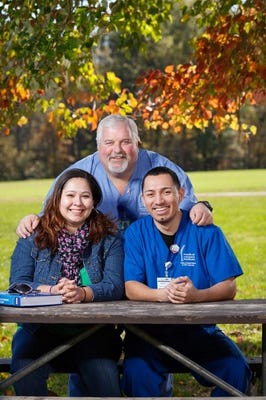source GAIA package: Sx_MilitaryTimes_M6201310311110003_5675.zip Origin key: Sx_MilitaryTimes_M6201310311110003 imported at Fri Jan 8 18:18:12 2016
 How well do veteran students fare academically at schools around the country?
How well do veteran students fare academically at schools around the country?
Answering that question is much harder than you might think.
The Education Department keeps stats in dozens of categories, from breakdowns of a school's recent hires by race and gender to data on how many students accepted to a school actually enroll.
But if you want to know how vets or military students are doing, you're out of luck. What's worse, one common statistic used to track academic success, the graduation rate, is calculated in a way that completely excludes most current and former troops.
But in recent years, schools have begun putting more effort into tracking how well their student veterans are doing. So this year, for the first time, in addition to evaluating schools' veteran-focused operations, we also considered more than a dozen different measures of academic success, quality and rigor, as reported by schools themselves and the Education Department, to develop the rankings.
Ben Randle, director of the Veterans Affairs Office at Buffalo's D'Youville College, our top-finishing four-year school, said the quality of service in the veterans office and stats such as graduation and retention rates are closely linked.
Randle said his office not only functions as a one-stop shop to help students navigate different university departments and bureaucracies, it also works with state and federal veterans affairs departments on behalf of students to help them with issues unrelated to school.
"That ... takes a lot of the stress off of the students," he said. "That literally lets them concentrate on what we consider to be the most important thing, and that's ... academics."
ECPI University in Virginia Beach, Va., topped our rankings of online and nontraditional schools, while Nebraska's Central Community College led the way among two-year schools.
Representatives of about 600 schools responded to our Best for Vets: Colleges 2014 survey comprising 150 questions that delved into school operations in unprecedented detail. The results show that many more schools are tracking the academic success of their military and veteran students — but the majority still do not.
Last year, fewer than 11 percent of school representatives responding to our survey said they track completion rates for current and former service members. This year, more than a third said they track similar academic success measures for such students.
They are also learning more about the students using veteran and military benefits. Nearly seven in 10 schools told us this year that they track whether Post-9/11 GI Bill users are veterans themselves or are using the benefit as family members.
On average, responding schools reported a 2012 graduation rate of just under 52 percent. Because that figure includes both four- and two-year schools, it appears to be in line with, and possibly above, the national averages, which were 56 percent and 34 percent, respectively, for 2011, the most recent year for which data is available from the Education Department. That data considers only first-time, full-time students, a category that rarely includes current or former service members.
Survey responses show that cost will still be a concern for vets at many universities.
Only about three in 10 private schools reported costs under the $18,077.50 Post-9/11 GI Bill cap in the 2012-13 school year. For public schools, the cap is set at the in-state tuition rate, with vets required to make up the difference if they must pay out-of-state tuition rates. Just 36 percent of survey respondents indicated that their schools waive out-of-state tuition rates for vets.
However, more than six in 10 told us they participate in the Yellow Ribbon program, under which schools and the Veterans Affairs Department partner to pay some or all of the difference between tuition costs and what the Post-9/11 GI Bill covers. Of those participants, seven in 10 gave Yellow Ribbon scholarships to every student who was eligible.
Two-thirds of schools told us they have a veterans office. That's a clear majority and a slight increase over last year, but it is still likely too low a number, in light of the fact that vets have told us this is a top priority for them.
Two-thirds of schools also indicated that they have a student veterans club.
About six in 10 said they offer training to faculty and staff on military issues, but most schools make the training optional.
Travis Karr of Central Community College said it's mandatory for everyone at his school. The training includes sessions on the transition from military to civilian life, post-traumatic stress and brain injuries. Vets participate in these sessions, actually teaching their teachers about what the college experience is like for them, he added.
More than just fostering understanding, it has changed campus culture. "This faculty and staff training has actually implemented a cultural change on campus to where there's more pride and more honor and connection to veterans than there was ever before," Karr said.
ECPI's Bob Larned said the school does "everything possible" to keep vets in school from one semester to the next, but he noted that vets — who are more likely to have full-time jobs, families and other responsibilities than other students — face significantly greater educational challenges than do 18-year-olds fresh out of high school.
"Our students are very, very busy people," Larned said. He added that the school tries to anticipate, and help vet students work through, obstacles that arise, to make sure that a child or family illness, for example, doesn't derail a vet's education, even if it does slow it down.
"We have found that if a person can stay in school and keep working towards the goal of graduation, they're going to be more successful."





